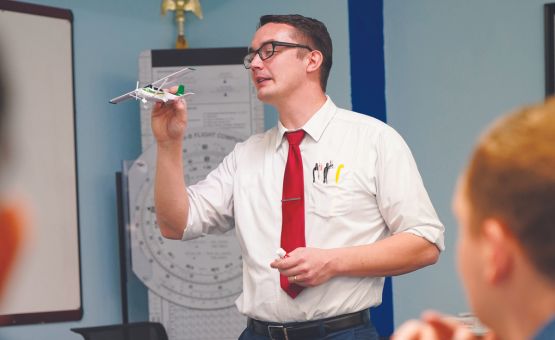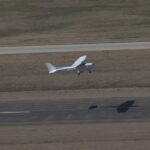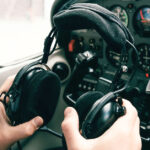HE WHO SWEATS MORE IN TRAINING BLEEDS LESS IN BATTLE. – GENERAL GEORGE S. PATTON
This quote always struck me as the sole justification for training hard. When I started to fly, I realized it was as significant to pilots as to soldiers.
You can’t train for everything, but there are some things that you can do to prepare yourself for unplanned events. Patton wasn’t necessarily talking about strength; he was talking about developing muscle memory and reactions to just about any scenario that may arise.
The only true way to prepare for a situation is to learn as much as possible about the task. Pilots must learn as much as possible about their equipment, charts, regulations, and other factors affecting their flight.
The thought of training for any situation is not an accurate goal. Knowing how things work enables you to react to failures in case they arise. If you understand how something works and can recognize when it doesn’t work anymore, it’s much easier to determine how to fix it or work around it. This approach is much more practical than training for every possible scenario.
Let’s take a look at the practical side of this discussion. You are flying along at 5,000′ in your 4-seat single-engine airplane. You notice that your tachometer just indicated a drop of 1,000 RPM. Do you have a problem?
If you don’t understand how your engine and various indicators work, you’ll likely panic and think you have an emergency. If you’ve learned and understand your systems, you will most likely ask yourself the following:
1) Am I still flying?
2) Has my indicated airspeed changed?
3) Are my oil pressure and temperature gauges indicating an engine issue?
If you find that you are indeed still flying, your airspeed has not changed, and your engine instruments are in the green, chances are you’ll determine that you’ve got a tach indicator problem. You’ll most likely have maintained your composure and calmly determined the outcome.
There have been many stories about airline pilots dealing with situations nobody could’ve ever imagined. Capt. Sully and his A320 landing on the Hudson River. Tammy Jo Schultz’s unbelievable calmness as part of her aircraft blew away and a passenger was partially ejected from the airplane.
Neither of these pilots had ever trained in scenarios like the ones they faced. But miraculous outcomes occurred because they understood their aircraft, its performance, and how to use the remaining systems.
In both cases, the outcomes resulted from knowledge, understanding, and experience. Neither pilot panicked, and neither lost control of their aircraft.
There are many similar stories in General Aviation. When those pilots are questioned, you find that they spent many hours in simulators working on various emergency scenarios, which helped them understand what to do when faced with an adverse situation.
Unfortunately, in General Aviation training, the focus is often placed on passing the checkride and not necessarily on how to fly the aircraft when things don’t work as they should. I’m not saying that one is more important than the other. Every training program should have a balance. If you learn to fly the airplane safely and make good decisions, you will likely do well on your checkride.
Conversely, if you try to memorize the answers and information, you’ll most likely not be able to answer a unique scenario-based quest correctly.
Another example is preparing for a night flight. The pilot, who understands all aspects of their flight, will most likely inspect their gear and ensure they have extra batteries for their headset, a red lens for their flashlight, and extra writing utensils. The unprepared pilot will only realize that they forgot the red lens for their flashlight when it’s too late, and they are already flying into the darkness.
It always amazes me when I see a pilot who does not adhere to the philosophy of loading their family into an airplane and taking off. Why should they not feel the same degree of responsibility as the rest of us?
If you are unsure how best to prepare yourself for unforeseen issues, find a good flight instructor and discuss a “scenario-based” review with them on the ground and in the simulator.
Strengthening and conditioning your muscle memory ensures that your response to adverse situations will be instant, fluid, and correct. While you can’t prepare yourself for every possible situation, you can prepare yourself to address any possible situation head-on and with confidence.
A good time for General Aviation Pilots to review these skills is during their Flight Review or Instrument Proficiency Check.










